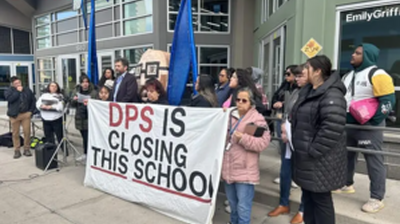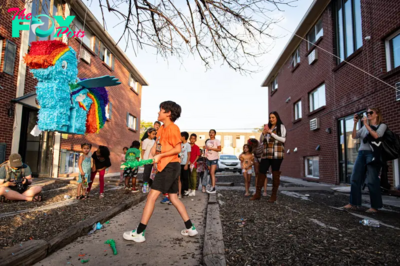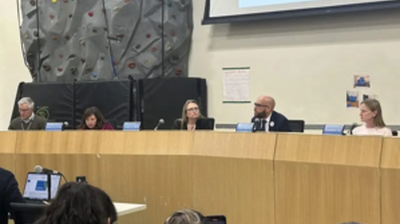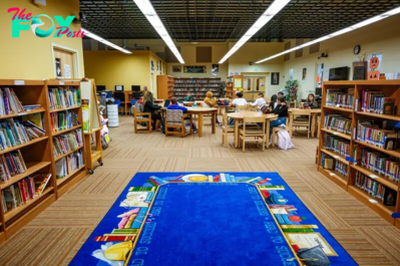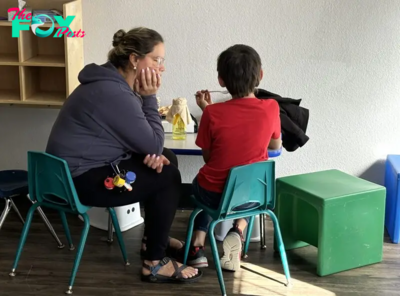Education
101 bills debated by the Colorado legislature in 2024 that you need to know about
The Colorado legislature debated more than 700 bills in the lawmaking term that ended Wednesday.
The Colorado Sun pored through the measures to highlight the ones that passed — and some that failed — that you need to know about.
Gov. Jared Polis has a June 7 deadline to sign or veto bills, or let them become law without his signature.
Topics: Housing | Guns | Transportation | Taxes | Health care | Criminal justice | Environment | Business | Education | Other bills that passed | Notable bills that failed
Housing

House Bill 1007: Starting July 1, local governments will be prohibited from limiting how many people are allowed to live together in the same dwelling, regardless of their familial relationship, under this bill signed into law by the governor. The only exceptions are if the limit is linked to Health or safety concerns or to comply with affordable housing guidelines.
CPR NEWS
House Bill 1098: Landlords are now required to renew a tenant’s lease unless they have cause not to do so under this measure signed into law by the governor. Known as the “for-cause eviction” law, it still allows landlords to evict tenants in the middle of their lease for nonpayment and other violations. They could also refuse to renew a lease if they plan to make major renovations, take the property off the rental market or rent it to a family member.
READ MORE
House Bill 1152: People who live in parts of the state that are in metropolitan planning organizations — a list that covers most of the Front Range and the Grand Junction area — would be allowed to build accessory dwelling units or “granny flats” on their properties under this legislation, which is awaiting the governor’s signature. Parking would have to be identified for the new unit. The legislation would also block many existing local regulations that prohibit ADUs. Finally, the bill would create state grant and loan programs to help finance the construction of ADUs built by low-to-moderate income homeowners units and for local governments to incentivize their regulatory work on ADUs.
READ MORE
House Bill 1175: This legislation would give local governments a new “right of first refusal” to buy publicly subsidized affordable housing properties when their rental restrictions expire.The measure would also require landlords to notify the government if they plan to sell older apartment complexes that aren’t subject to rental restrictions. The local government would then have the right to make a first offer on the property in order to turn it into affordable low-income housing.
READ MORE
☀️ READ MORE
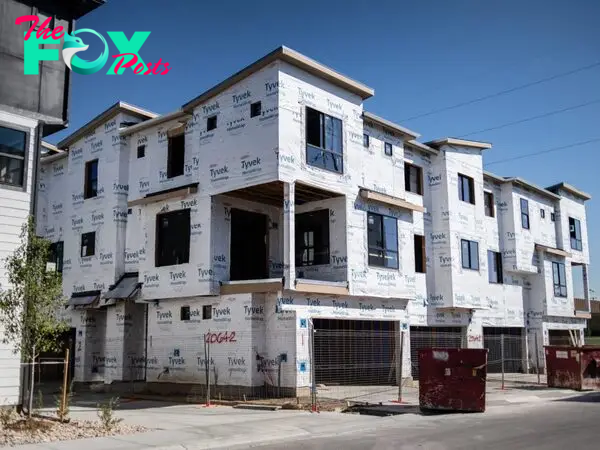
The six major Colorado land-use bills passed by Democrats in the legislature and aimed at housing affordability
The measures are aimed at making housing more affordable by increasing density and eliminating roadblocks to development
Read moreHouse Bill 1233: This measure, which awaits the governor’s signature, would roll back a requirement in a bill passed by the legislature in 2022 that homeowners associations must physically post a notice on a home when an owner owes them money. However, it adds that the HOA must mail a notice and contact the owner by two of the following: telephone, email or text message.
House Bill 1304: Cities and towns would be prohibited from establishing or enforcing minimum parking requirements for residential buildings in specific areas under this legislation, which is awaiting the governor’s signature. The measure would take effect June 30, 2025, and apply to parts of the state that are in a metropolitan planning organization — a list that covers most of the Front Range and the Grand Junction area — and near certain bus or train stops or routes. Additionally, the legislation would only apply to multifamily residential developments, buildings redeveloped for residential purposes and buildings redeveloped for mixed-us in which at least 50% of the new use is residential.
House Bill 1313: An estimated 31 local governments — most of them along the Interstate 25 corridor — would be required to change their zoning laws to allow more housing units near major bus and rail corridors under House Bill 1313. The measure would require that those local governments zone for 40 units per acre within a quarter mile of bus stops and a half mile from rail stations. The legislation, a key piece of Gov. Jared Polis’ housing agenda, includes $35 million in financial incentives over four years for communities that comply. The money could go toward things like affordable housing projects. The bill hasn’t been signed yet.
READ MORE
House Bill 1316: This measure would create a pilot program to offer a new tax credit to developers of middle-income housing. Based on the affordable housing tax credit for low-income families, it would subsidize housing that’s affordable for those who make between 80% and 120% of the area median income. The bill hasn’t been signed by the governor yet.
☀️ READ MORE
Nederland repeals “rights of nature” for watersheds to better pursue new dam
Larimer County commissioners say “yes” to Thornton water pipeline
A 15-year-old hockey player with MS may never experience a symptom, thanks to Colorado research
House Bill 1337: This measure awaiting the governor’s signature would cap the attorneys fees a homeowner’s association can charge a homeowner facing eviction at half of the homeowner’s unpaid assessments and any other money owed to the association, or $5,000, whichever is less. There would be an exception for people who are able to pay higher amounts but wilfully did not pay their debts to the HOA and the cap would increase annually based on inflation. Additionally, the measure would impose a “first right of redemption” on HOA-foreclosed homes sold at auction, giving homeowners, tenants, affordable housing nonprofits, a community land trust, a cooperative housing corporation and the state or local government — in that priority order — 30 days to file an affidavit stating their intent to purchase the property. They would then have 180 days after the sale to come up with the money and complete the deal. House Bill 1337 came after The Colorado Sun published an investigation in August revealing that Colorado HOAs had filed roughly 3,000 foreclosure cases since 2018, more than 250 of which — or roughly 8% — resulted in properties being auctioned off, most for well below market value.
House Bill 1434: This measure would expand Colorado’s affordable housing tax credit, which helps fund development of low-income housing. The bill, which the governor is expected to sign, would allow the state to issue $20 million in new credits this tax year, then lesser amounts through 2027. The bill also includes $30 million through 2029 to fund grants for transit-oriented communities.
Senate Bill 94: This legislation, which the governor signed into law, updates Colorado’s so-called warranty of habitability law, including to require that landlords complete repairs for most issues — like fixing loose tiles or ensuring adequate trash pickups — within 14 days. The bill would give landlords seven days to resolve more serious conditions that can threaten a person’s life, safety or health, like gas leaks, broken heating systems, inadequate running water and pest infestations.
READ MORE
Senate Bill 111: Senior homeowners wouldn’t lose a popular property tax break if they move under this bill that makes the so-called senior homestead exemption portable. The measure awaits the governor’s signature.
Senate Bill 134: This legislation, signed into law by the governor, prohibits a homeowners association from restricting someone who lives in their community from operating a business out of their home.
Senate Bill 174: Under this measure, local governments would be required to conduct housing needs assessments every six years and create action plans to meet those needs. Local governments that make progress on their housing plans would have an advantage in winning grant dollars from a number of state agencies. The bill awaits the governor’s signature.
Guns

House Bill 1174: This measure, awaiting the governor’s signature, would changes to Colorado’s laws around who can obtain a concealed carry permit and how they obtain that permit. It would mandate that training classes to qualify for a concealed carry permit offer at least eight hours of instruction, including a live-fire test where participants shoot at least 50 rounds. Passing the live-fire test, as well as a written exam, would be mandatory to get a concealed carry permit.
House Bill 1348: A gun would have to be in a locked, hard-sided container — including a glove box or center console — out of view when kept in a vehicle under this bill awaiting the governor’s signature. The bill would also require the vehicle to be locked. Violators would face a fine, though there would be exceptions for people who work on farms and ranches or for the military or as law enforcement.
-

 Education2d ago
Education2d agoWhat would it mean if President-elect Trump dismantled the US Department of Education?
-

 Education5d ago
Education5d agoPhiladelphia students have a new reading and writing curriculum − a literacy expert explains what’s changing
-

 Education5d ago
Education5d agoWhy school police officers may not be the most effective way to prevent violence
-

 Education1w ago
Education1w agoCampus diversity is becoming difficult to measure as students keep their race and ethnicity hidden on college applications
-

 Education1w ago
Education1w agoFederal judge rules that Louisiana shalt not require public schools to post the Ten Commandments
-
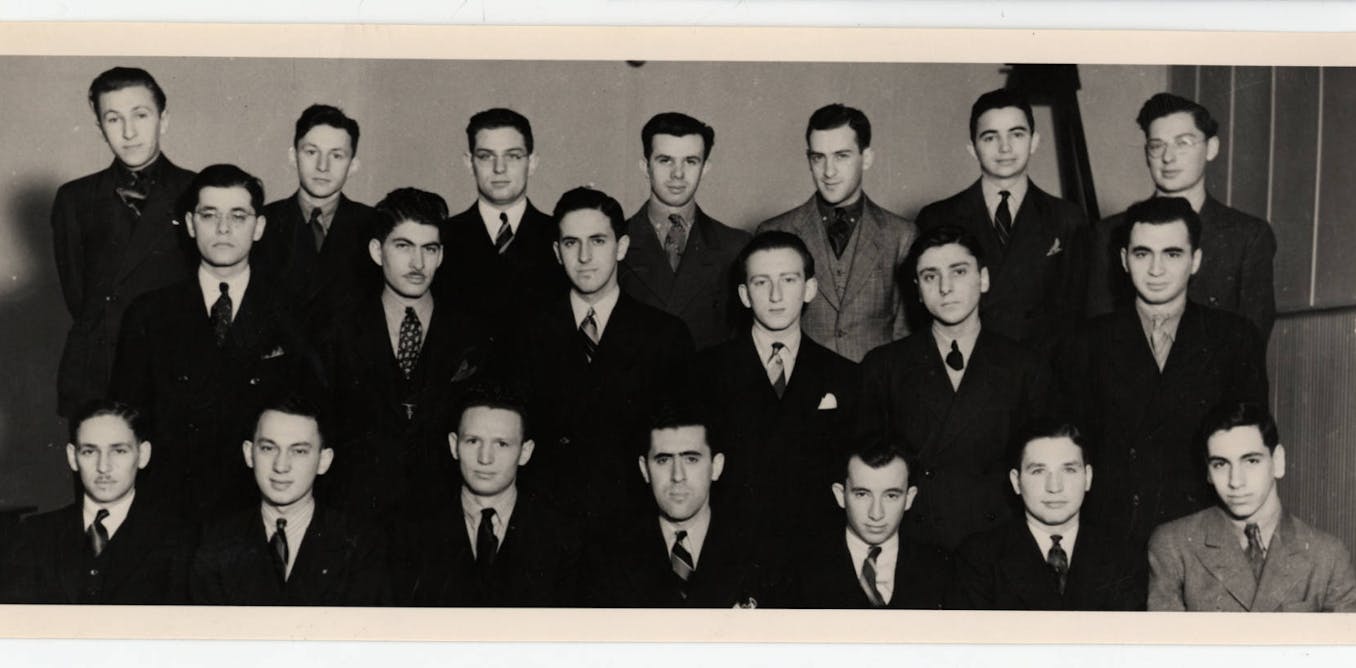
 Education1w ago
Education1w agoCampuses are ground zero in debates about antisemitism − but that’s been true for 100 years
-

 Education1w ago
Education1w agoSocioeconomic status explains most of the racial and ethnic achievement gaps in elementary school
-

 Education1w ago
Education1w agoMothers, metaphors and dyslexia: What language reveals about the challenges of a child’s learning disability
